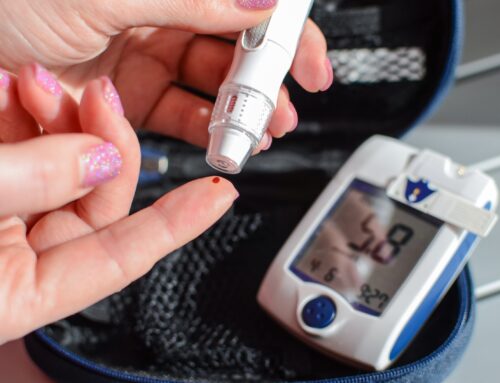Diabetes is a chronic condition that affects millions of people worldwide. While there is no cure for diabetes, there are various medications and therapies available to manage the disease. One such medication is Tirzepatide, a glucagon-like peptide-1 receptor agonist (GLP-1 RA) that has gained popularity for its effectiveness in managing type 2 diabetes. However, Tirzepatide may not be suitable for everyone, and there are several alternatives available. In this article, we will explore the Tirzepatide alternatives and other medications and therapies available for managing diabetes.
10 Effective Tirzepatide Alternatives for Managing Diabetes
- GLP-1 RAs: Glucagon-like peptide-1 receptor agonists (GLP-1 RAs) are a class of medications that stimulate the production of insulin in the body. Some GLP-1 RAs that are commonly used as alternatives to Tirzepatide include exenatide, liraglutide, and semaglutide.
- SGLT2 Inhibitors: Sodium-glucose cotransporter 2 inhibitors (SGLT2 inhibitors) are a class of medications that lower blood sugar levels by increasing the amount of glucose excreted through urine. Some SGLT2 inhibitors that can be used as alternatives to Tirzepatide include empagliflozin, dapagliflozin, and canagliflozin.
- DPP-4 Inhibitors: Dipeptidyl peptidase-4 inhibitors (DPP-4 inhibitors) are a class of medications that help lower blood sugar levels by increasing the production of insulin in the body. Some DPP-4 inhibitors that can be used as alternatives to Tirzepatide include sitagliptin, saxagliptin, and linagliptin.
- Biguanides: Biguanides are a class of medications that reduce glucose production in the liver and increase insulin sensitivity in the body. Metformin is a commonly used biguanide that can be used as an alternative to Tirzepatide.
- Sulfonylureas: Sulfonylureas are a class of medications that increase insulin production in the body. Some sulfonylureas that can be used as alternatives to Tirzepatide include glimepiride, glyburide, and glipizide.
- Meglitinides: Meglitinides are a class of medications that increase insulin production in the body. Some meglitinides that can be used as alternatives to Tirzepatide include nateglinide and repaglinide.
- Alpha-glucosidase inhibitors: Alpha-glucosidase inhibitors are a class of medications that slow down the absorption of carbohydrates in the body. Some alpha-glucosidase inhibitors that can be used as alternatives to Tirzepatide include acarbose and miglitol.
- Insulin Therapy: Insulin therapy is a type of treatment that involves injecting insulin into the body to help manage blood sugar levels. Insulin therapy can be used as an alternative to Tirzepatide for managing diabetes.
- Non-Insulin Injectable Therapy: Non-insulin injectable therapy is a type of treatment that involves injecting medications into the body to help manage blood sugar levels. Some non-insulin injectable therapies that can be used as alternatives to Tirzepatide include glucagon-like peptide-1 receptor agonists (GLP-1 RAs), amylin analogs, and pramlintide.
- Alpha-glucosidase inhibitors: These medications slow down the digestion of carbohydrates in the small intestine, which helps to control blood sugar levels after meals. Acarbose (Precose) and miglitol (Glyset) are two commonly prescribed alpha-glucosidase inhibitors that may be considered as alternatives to Tirzepatide. However, they are typically used in combination with other diabetes medications and may cause side effects such as abdominal discomfort and diarrhea. As with any medication, it is important to discuss the potential benefits and risks with your healthcare provider before starting treatment with an alpha-glucosidase inhibitor.
In conclusion, Tirzepatide is a promising new medication for managing diabetes, but it may not be suitable for everyone. Fortunately, there are several alternative treatment options available for those who cannot use Tirzepatide or would prefer a different therapy. GLP-1 RAs, SGLT2 inhibitors, DPP-4 inhibitors, biguanides, sulfonylureas, meglitinides, alpha-glucosidase inhibitors, insulin therapy, non-insulin injectable therapy, and combination therapy are all viable alternatives to Tirzepatide. By working with their healthcare provider, individuals with diabetes can determine which treatment option is best for their unique needs and goals.
Reference:
American Diabetes Association. (2021). Standards of Medical Care in Diabetes – 2021. Diabetes Care, 44(Supplement_1), S1-S232. https://doi.org/10.2337/dc21-Sint01
Centers for Disease Control and Prevention. (2021, March 9). Diabetes. CDC. https://www.cdc.gov/diabetes/basics/diabetes.html
Mayo Clinic. (2021, February 16). Type 2 diabetes. https://www.mayoclinic.org/diseases-conditions/type-2-diabetes/symptoms-causes/syc-20351193
National Institute of Diabetes and Digestive and Kidney Diseases. (2020, July). Diabetes Medicines. NIDDK. https://www.niddk.nih.gov/health-information/diabetes/overview/what-is-diabetes/medications-treatments/diabetes-medicines
U.S. Food and Drug Administration. (2020, August 28). Highlights of Prescribing Information: Tirzepatide. FDA. https://www.accessdata.fda.gov/drugsatfda_docs/label/2020/761196s000lbl.pdf
Ready to explore alternative diabetes management options? Request a consultation with the Alpha Male Clinic today. Our experienced healthcare professionals can guide you through a comprehensive analysis of GLP-1 RAs, SGLT2 inhibitors, DPP-4 inhibitors, biguanides, sulfonylureas, meglitinides, alpha-glucosidase inhibitors, insulin therapy, non-insulin injectable therapy, and combination therapy. Together, we’ll determine the most effective and suitable treatment option for your specific needs and goals. Take the first step towards optimal diabetes management by contacting the Alpha Male Clinic for a consultation now.
Tirzepatide is a dual-action medication that aids in weight loss and blood sugar control. It works by targeting the glucagon-like peptide-1 (GLP-1) and glucose-dependent insulinotropic polypeptide (GIP) receptors, promoting reduced appetite, improved glycemic management, and weight loss.
Tirzepatide is typically prescribed for adults with type 2 diabetes and weight-related health issues. However, it is essential to consult with a healthcare provider to determine if Tirzepatide is the right treatment option for you.
Tirzepatide is administered as a subcutaneous injection, usually once a week. Your healthcare provider will guide you on the proper injection technique and dosage.
It is crucial to discuss your current medications and medical history with your healthcare provider before starting Tirzepatide. Your provider will determine if Tirzepatide can be safely combined with other diabetes medications based on your specific situation.
The time it takes to see results with Tirzepatide can vary between individuals. Some people may notice weight loss and improved blood sugar control within a few weeks, while others may take a few months to achieve significant results.
Some common side effects of Tirzepatide include nausea, vomiting, diarrhea, and constipation. These side effects are usually mild and subside as your body adjusts to the medication. If you experience severe or persistent side effects, consult your healthcare provider.
The duration of Tirzepatide treatment depends on your individual needs, goals, and response to the medication. Your healthcare provider will monitor your progress and adjust your treatment plan as needed.
Tirzepatide is primarily prescribed for individuals with type 2 diabetes and weight-related health issues. However, it is important to consult your healthcare provider to determine if Tirzepatide is suitable for you, even if you do not have diabetes.
It is possible to regain weight after discontinuing Tirzepatide treatment. To maintain long-term weight loss results, it is essential to adopt a healthy lifestyle, including a balanced diet and regular physical activity. Consult your healthcare provider for guidance on maintaining your weight loss after completing your Tirzepatide treatment.
Insurance coverage for Tirzepatide varies depending on your provider and specific plan. It is essential to check with your insurance company to determine your coverage and any out-of-pocket expenses you may incur.



